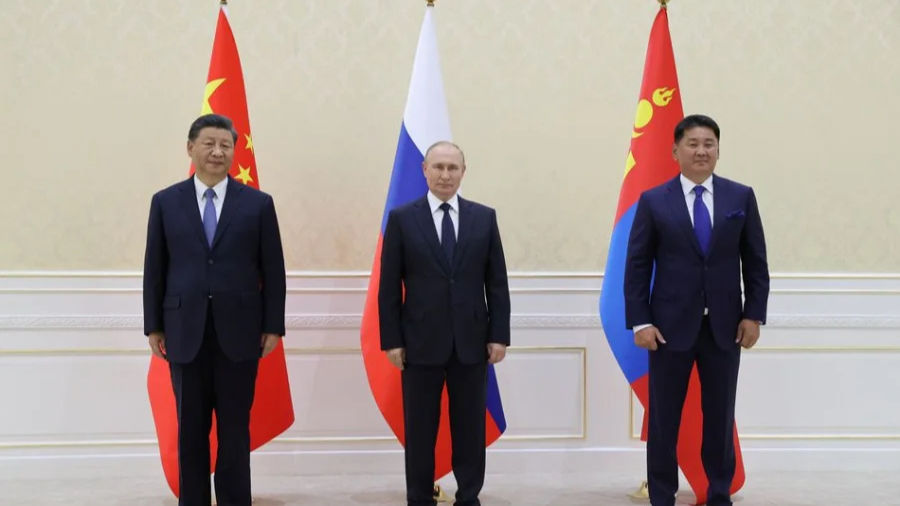Mongolia Flexes Diplomatic Muscles via Opening its Embassy in Uzbekistan
- Mongolia Weekly

- Jan 11, 2024
- 2 min read
As the plenary session of the State Great Khural (parliament) held in January 2024 members of the parliament approved the opening of a new embassy in Tashkent, the capital of the Republic of Uzbekistan.
This decision, spearheaded by Minister of Foreign Affairs B. Battsetseg, has highlighted Mongolia's evolving foreign policy and strategic objectives.

The proposal to open a new embassy aligns with the "2020-2024 Action Program of the Government of Mongolia," which seeks to actively develop mutually beneficial cooperation with other nations under the "third neighbor" policy.
Mongolia’s strategic focus on Uzbekistan, given its position as Central Asia's largest market with a population of around 35 million people and strong sectors in agriculture and light industry, creates ample opportunities for both countries. Cooperation between these nations could lead to expanding trade, diversifying food supply, increasing export, and promoting the products of Mongolian national producers.
The opening an embassy in Uzbekistan is part of a calculated effort to solidify Mongolia's long-term vision of optimizing diplomatic missions based on the level of political and economic relations, number of expatriates in the host nation, and data from migratory flows.
This strategic foresight and investment have the potential to create significant economic benefits for Mongolia. The diversification of the food supply could address the pressing issue of food security, and the increased export of Mongolian meat and meat products can lead to economic growth. The opening of the embassy itself, planned with just three positions, will contribute to the budget approval that reflects the necessity of these actions.
Beyond the direct economic implications, Mongolia's diplomatic foray into Uzbekistan opens doors to various other potential areas of collaboration. Opportunities for cooperation in culture, education, energy resources, and information technology offer avenues for both countries to explore mutually beneficial projects. Moreover, the shared goals and complementary sectors of both nations make them reliable partners in other international arenas, where collective bargaining power may serve their interests better.
The possibility of this decision being a political strategy should not be entirely dismissed. The long-term effects of this move on Mongolia's foreign policy and diplomatic relations cannot be ignored. Political initiatives within the foreign policy domain can transcend election cycles and leave lasting impacts on a nation’s position within the global community.
Mongolia's decision to open an embassy in Tashkent remains an essential and strategic shift in the nation's developing foreign policy. In the broader context of Mongolia's evolving partnership with other nations and pursuit of its long-term diplomatic objectives, the establishment of an embassy in Uzbekistan should be welcomed as a positive development.
Ultimately, the success of Mongolia's growing diplomatic endeavors, including the Tashkent embassy, will depend on the continued focus, determination, and pragmatism of both government leadership and the Mongolian people.
About the author: Abdul is a law student at Liverpool John Moores University in the UK. Originally from Lahore, Pakistan, he writes insightful columns on geopolitics, international relations, and legal affairs for newspapers and media outlets in over 10 countries. Abdul provides unique perspectives on global issues in both English and Urdu. His perceptive analysis offers new understanding of the international landscape.



Comments